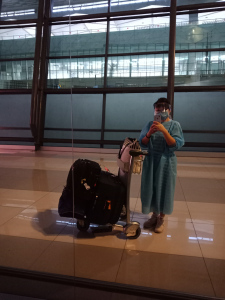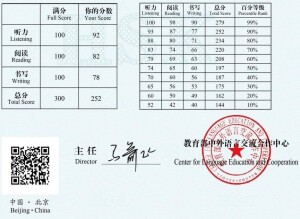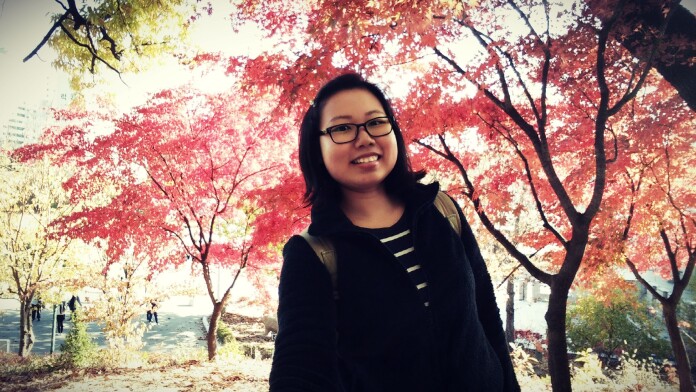Little did I expect that a newly detected virus in Wuhan, as reported in online news which I nonchalantly scrolled through in January 2020 would be spreading exponentially to every nook and cranny of the earth within months. The past two years have been a life-changing moment for someone who has spent most of her 20s working and living in the Maldives, a haven for sand, sea, sky, and sun-enthusiasts. I had to resign and leave the place which has endowed me with an enriching experience in the tourism industry, along with invaluable connections at the height of the pandemic in mid-2020.

I have had my fair share of ups and downs have been at home for months after my resignation, staying indoors daily, and unsuccessful job applications. However, it has also allowed me to do things that I was not able to when I had a full-time job. As a job-seeker searching for new opportunities currently, I claim that I am fluent in Chinese Mandarin in my CV, but a credible certification is missing. The latest Chinese Proficiency Test that I took was in 2006. Thus, I decided to take the HSK just a month shy of the nearest test date on 24 April 2021. I would like to share my HSK home edition test experience and thoughts here.
HSK is the abbreviation for Hanyu Shuiping Kaoshi (汉语水平考试). It would be the IELTS/TOEFL equivalent used to gauge the proficiency of foreign Chinese Mandarin language users, and as a prerequisite for foreign nationals when enrolling in universities in China. It is administered by Hanban, an institution affiliated with the Ministry of Education in China. Unlike its English counterparts, HSK has only listening and reading sections for the first two levels (HSK level 1-2), and has an additional writing section for the last four levels (HSK level 3-6). Speaking ability is tested separately under the HSKK (Hanyu Shuiping Kaoshi – 汉语水平口语考试). Currently, HSK is divided into 6 levels. In order to keep abreast with the ever-evolving requirements, an extension up to level 9 is in the pipeline. All along though, HSK level 6 has been considered as the highest Chinese proficiency level possibly attained by a non-native speaker.
In 2020, HSK has not been exempted from the impact of the covid-19 pandemic. Fortunately, Hanban responded fast enough to facilitate the home edition of online HSK testing in mid-2020. I jumped on the bandwagon of the home edition test on 24 April 2021, to make the most of the convenience in taking an internationally recognized test at home, while looking for full-time employment in a more productive and meaningful manner.

Picture source: PBMUAI’s Instagram
Firstly, I made an account on HSK’s official website. Next, I registered myself with a local test center in the city that I currently reside in (test takers have to be located within the same country as the chosen local center). I registered myself in Pusat Bahasa Mandarin Universitas Al Azhar Indonesia (PBMUAI) since it is the only Confucius Institute in Jakarta, and it has an Instagram account with many useful posts on the procedures of taking the HSK home edition test, as well as pictures of previous test-takers. The picture below was of some of my fellow HSK test-takers in April which PBMUAI posted on Instagram, which also captured my back and laptop. PBMUAI would contact potential test-takers via email, guide them step by step for registration, environment testing, and payment procedures, as well as conducting an online briefing a day prior to the test.
On the D-day of the test, all test takers would be assigned into a group of 10 in VOOV app (similar to Zoom). They would be supervised via VOOV an hour before the test starts until it finishes by an invigilator from China. Each examinee would need to have a computer/laptop with a webcam to do his/her test, and another device placed a meter away behind him/her for video call proctoring purposes throughout the exam. Before the test, the invigilator would be inspecting whether each test taker is inside an enclosed room without any companion and ensuring that his/her desk is clear from any unrelated items. Test takers are not supposed to look in any other direction except their own computers where they would be completing their tests once they log into the testing system. Their webcams would capture the examinees’ faces intermittently, to serve as another means of proctoring them.
The higher the HSK level, the longer the test duration is. Mine lasted for 135 minutes. I was battling with time, and with some noises which came from outside of my test room, which I strived to ignore. Yet, I really enjoyed the convenience of taking a universally standardized exam at home, particularly during a pandemic.

Around two weeks after the test, I got my results! My goal was to reach 240/300, and I scored 252/300. I was worried the most about my writing as I had no one grading my writing practice tests since I prepared for my HSK independently. Yet, I still scored 78 for my writing. Considering all factors, I think I did quite well. Most importantly, I finally have proof to substantiate my Chinese language skills whenever I apply for jobs.
In essence, while the pandemic is wreaking havoc in our lives, there are still many meaningful things we could do in the meantime while praying that it will be over soon. I would like to share a beautifully apt quote from my HSK material which serves as a good reminder for us during this unprecedentedly challenging time.
若要躲避燃烧的痛苦,火柴一生都将黯淡无光。
Should a fire match be afraid of the burning pain, it would stay dim and dark for the rest of its life.








